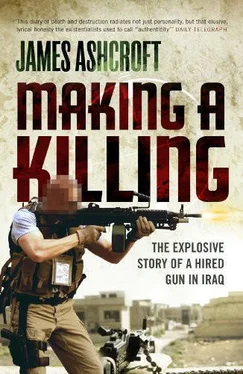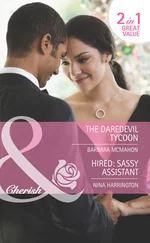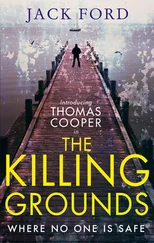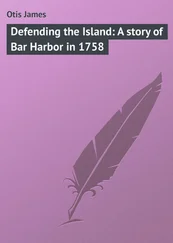‘Channel one, is that direct line of sight radio to radio?’
‘ Ja. Ja . If we lose comms you must switch to channel one.’
Hendriks was clearly the spokesman. Etienne kept his eyes on the road and a faint smile on his lips.
I learned from Angus later when we sat down to catch up on old times that we were hiring network time from another company that had had the foresight to set up rebro towers all over the city. In the meantime, Spartan planned to fit all the vehicles for high-frequency radio, which would give us greater range than our VHF handsets. HF could be difficult in desert conditions, especially with the atmospheric differences between night and day. I wondered if comms training would be included. In the meantime I buckled my seat belt.
Etienne was driving like a lunatic.
Literally. Like. A lunatic. He made Mohammed, who had driven us from the border, look like a Sunday driver on the way to the mosque.
The roads and traffic through the city were indescribably chaotic. But whatever gap Les managed to put the car through in front of us, Etienne was right on his rear bumper. I thought at one stage he was going to park us in the Opel’s boot, but it was obvious Etienne knew his stuff and like a good Close Protection (CP) driver he never let another car separate the two of us. Which for Baghdad was amazing.
We had our safety catches off and sat there scrutinising every car we passed in the mayhem. Added to the general insanity and the general impatience of Iraqi drivers, the electricity grid was still iffy so there was not a single working traffic light. There wasn’t a single working policeman, either. There were cars shoving into every available gap in the road and kamikazes coming back down the wrong way in our lane.
Etienne out-brazened them. If they were playing chicken they didn’t know who they were dealing with. One driver Etienne simply shunted off the road and I watched the car spinning round in circles behind us in the side mirror. The high kerbs in Baghdad were useful in the seasonal flooding but they also served to prevent traffic from spreading out and driving across the desert to cut the bends.
Seamus on the radio kept up a steady commentary of potential threats. I appreciated his style. Knowing we were all experienced he was not wasting time mentioning everything he saw. Instead he focused on potential threats further afield, and at the same time identified anything near us he regarded as a serious threat. I had been in some vehicles where the commentary from the lead vehicle was just mindless drivel so totally useless to the vehicles behind that the occupants would end up tuning it out.
Seamus’s voice became urgent.
‘ Coalition dead ahead coming this way, weapons down, weapons down .’
A CF patrol of four Humvees ploughed its way through the traffic. We were still in the honeymoon period before suicide bombers arrived so the CF had yet to adopt the drill of keeping all civilian traffic at least 50 metres away from each patrol. A good defence against the current attacks by small arms and RPG was to have lots of local traffic around you, but this strategy would have to adapt as time went by.
We lowered our weapons while the patrol passed. American soldiers were still not used to seeing security contractors and we didn’t want to startle some young machine-gunner with the sight of armed men in civilian vehicles not wearing friendly uniforms.
Unlike the Brits mounting occupation and peacekeeping duties, the US troops in Iraq, especially Baghdad in late 2003 and through 2004, were the same guys who fought their way in. The poor sods in the 3rd Infantry Division had a combat mindset not in any sense conducive to peacekeeping. As for their anti-ambush drills, they had to be seen to be believed. Every weapon in the convoy unloaded in a 360° arc into anything that moved… dogs, donkeys, taxis, children, buses, private contractors, you name it, it got some. They would be leaving this country without making a single friend. A pity because, as I was to learn, the Iraqis are the friendliest Arabs in the world.
The highest scoring killer of private security contractors up until then was, of course, the United States Army, seconded by terrorists, but only when catching stray terrorist fire because they were driving along in traffic mingled with a US patrol.
As long as one kept away from the Yanks it was ‘pretty gut ’, Hendriks informed me.
The patrol passed and we continued on our way. I gawped like a tourist at horse- and donkey-drawn carts. The animals were emaciated and you could count every rib and knob on their spines. Their drivers beat them viciously with long sticks. It was a sad and hopeless sight that ranked up there with crippled children begging. You saw that too, sometimes.
We turned on to the six-lane highway and I relaxed somewhat. We were moving at speed now, the cars around us spaced out, Seamus still scripting the way ahead. In a mixed packet, with two different types of vehicle, it was considered less likely that the enemy would spot us. But Etienne was blonder than me, a blue-eyed Boer, and everyone in our two cars◦– except me◦– was wearing a fancy pair of shades. As far as I could see we stuck out like tits on a bull.
I started to look towards the relatively distant tree lines and rooftops for threats. In the middle of the city, I had been keeping my eye on the nearest cars and doorways, AK held left-handed as I was sitting in the right-hand seat, ready to shoot without hesitation. It is the first few seconds that matter in close-quarter contact and I was comforted to see that the others all seemed to be always and instantly ready to return fire.
I noticed the burning flame on top of a tower in what had to be Dora refinery to our left and fixed the landmark in my mind.
Within minutes we arrived at the All American range set up by the 82nd Airborne◦– known as the All Americans◦– and unloaded the ordnance from the vehicles. The first order of business had been to zero our own weapons, but we decided instead to test-fire the entire batch so that we could then select the best ones for our own and return the rest to the armoury. We laid out some cardboard boxes at 50 metres as targets and then some Coke cans for rough zeroing.
‘I’ll give it a go,’ said Les, stepping up to the mark.
He loaded the first rifle, checked the safety selector was all the way down to single shot, cocked it and shouldered the weapon. I already had my ear defenders on, as did Seamus; the South Africans had popped a couple of 9mm rounds out of the top of their pistol mags and jammed them into their ears. That’s how they did it in Africa.
Les pulled the trigger. Nothing happened. He cocked it again, ejecting the first round, and pulled the trigger. Again we could hear the hammer clicking forward but the rifle didn’t fire.
‘For fuck’s sake.’ Les cocked the weapon again and the third round fired.
He worked his way through another ten rounds, of which less than half fired.
‘What is this shit?’ Les said.
Hendriks and I checked the ejected, unfired rounds. All of them had strong strike marks into the primers at the base of the cartridges, so it was not a fault with the firing pin.
‘You see this at home,’ Hendriks said. He pointed at the line of marks where the bullet itself was crimped into the top of the brass cartridge. ‘They just clamp the rounds in and they do not fokken seal it. If the ammunition is stored for a long time, moisture gets in the holes and the powder. Then the round is fokken useless. Sometime even worse, the round fire but it only goes halfway up the barrel, then when you fire the next bullet, faaark, you are in trouble boet , yisss!’
The Yaapies all had this bizarre habit of hissing an excited ‘Yissss’, when something awful happened. Someone would crash in front of us on the road and they would all chorus, ‘Yissss, yisss,’ like a bunch of snakes.
Читать дальше












